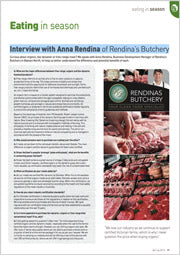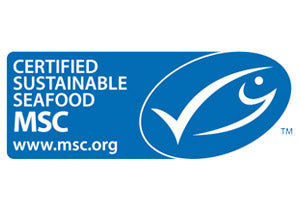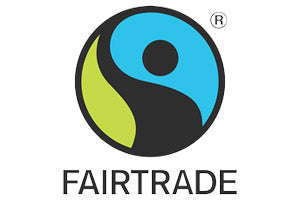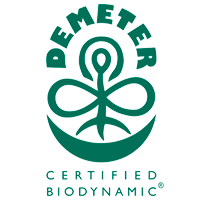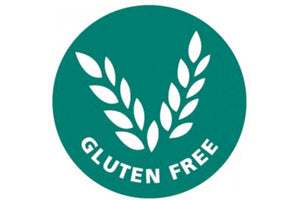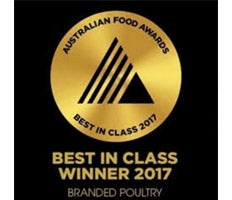Interview with Anna Rendina of Rendina’s Butchery
Curious about organic, bio-dynamic or free-range meat? We speak with Anna Rendina, Business Development Manager of Rendina’s Butchery in Balwyn North, to help us better understand the difference and potential benefits of each.
Q: What are the major differences between free-range, organic and bio-dynamic livestock/products?
A: Free-range refers to an animal who is free to roam outdoors on pasture,
at selected times of the day. This helps promote a healthy and stress-free environment and the opportunity for extensive locomotion and sunlight. Some free-range products restrict the use of hormones and chemicals and use feed such as; corn, maize and barley.
An organic farm is based on a holistic system designed to optimise the productivity and diverse communities within the agro-ecosystem relying on; crop rotation, green manure, compost and biological pest control. Animals are not fed any growth hormones and are kept in natural and stress free environments. All certified organic or biodynamic farms are audited by certification bodies regularly to ensure the compliance of strict guidelines and methods.
Based on the teachings of Austrian-born Philosopher, Rudolf Joseph Lorenz Steiner (1861), his principle of bio-dynamic farming was to work in harmony with nature. Bios (meaning life), Dynamics (meaning energy), the soil works with its natural sources and is enhanced with homeopathic methods of farming. This philosophy of working with nature creates balance and healing in the soil and provides a healthy living environment for plants and animals. This strict non- chemical agricultural movement relies on natural composting and is managed in accordance with the phases of the moon.
Q: Why would someone want to purchase one method over the other?
A: It really comes down to the individual’s beliefs, values and lifestyle. The main difference is organic and bio-dynamic guarantees the feed is also certified.
Q: Grass-fed beef is popular amongst ‘paleo enthusiasts’, what are the benefits in consuming grass-fed beef?
A: Grass-fed beef contains a great source of omega-3 fatty acids and conjugated linoleic acid (CLA), however, certified organic or bio-dynamic grass fed is even more valuable, as certification standards help lower the risk of contaminated feed.
Q: What certification do your meats abide by?
A: All our meats are certified Bio-dynamic by Demeter. When this is not available we source certified organic meats as an alternative. Demeter allows us to carry a licence to operate a retail and wholesale butcher shop. Within this certification, we are audited quarterly to ensure we practice according to the health and food safety regulations of the meat industry in Australia.
Q: How do you retain industry certification standards?
A: Our Demeter certification is retained by yearly audits where we have visits and inspections to ensure we follow all the regulations in relation to this certification. We must provide proof of purchases and records of stock invoices. We liaise regularly with our certification body and farmers as we have established a valuable relationship over the last 15 years.
Q: Is it more expensive to purchase bio-dynamic, organic or free-range than conventional meat? If so, why?
A: I love getting asked this question! I often hear “it’s more expensive to buy certified organic and bio-dynamic meats,” especially when the cost to the farmer becomes higher due to drought. However, you can still buy organic and save. We offer bulk or family value packs where you are able to purchase a whole lamb or a quarter of beef at a time and we package it for you as per your request. We are currently re-vamping our website and will be offering a new online service with over 200 certified products, where we will offer huge savings and discounts.


